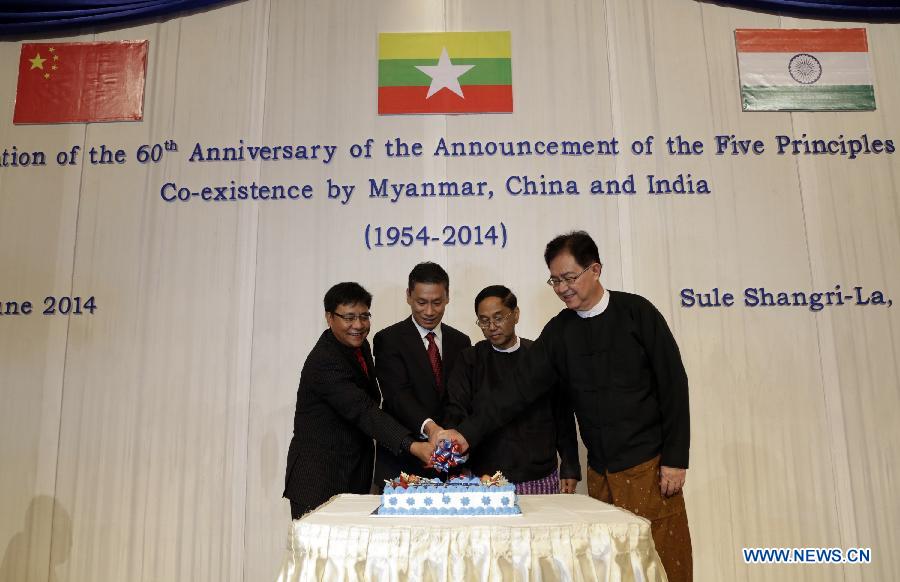Five Principles of Peaceful Coexistence develop with times, stay relevant
 0 Comment(s)
0 Comment(s) Print
Print E-mail Xinhua, June 30, 2014
E-mail Xinhua, June 30, 2014
The Five Principles of Peaceful Coexistence initiated six decades ago have been enriched with the development of the times as they have become increasingly important in handling international relations.
In 1954, leaders of China, India and Myanmar initiated the Five Principles, including mutual respect for sovereignty and territorial integrity, mutual non-aggression, non-interference in each other's internal affairs, equality and mutual benefit, and peaceful coexistence.
|
|
|
Sailas Thangal (1st L), Charge d'Affaires of the Indian Embassy, Chen Chen (2nd L), Charge d'Affaires of the Chinese Embassy, Yangon Region Chief Minister U Myint Swe (2nd R) and U Thant Kyaw, Deputy Minister for Foreign Affairs, cut the cake during the commemoration ceremony of the 60th Anniversary of the Announcement of the Five Principles of Peaceful Coexistence in Yangon, Myanmar, June 28, 2014. The Myanmar Foreign Ministry Saturday organized a function to commemorate the 60th anniversary of the Five Principles of Peaceful Coexistence. [Xinhua/U Aung] |
The past sixty years witnessed rapid pace of globalization and an increasingly interdependent world. However, challenges such as unfair international relations and regional conflicts and wars are reminding us that there is a long way to go to safeguard world peace and promote common development.
Under such circumstances, as Chinese President Xi Jinping has indicated, the spirit of the Five Principles, instead of being outdated, remains as relevant as ever; its significance, rather than diminishing, remains as important as ever; and its role, rather than being weakened, has continued to grow.
Today, new content has been added to the Five Principles in six aspects -- sovereign equality, common security, common development, win-win cooperation, inclusiveness and mutual learning, as well as fairness and justice.







Go to Forum >>0 Comment(s)